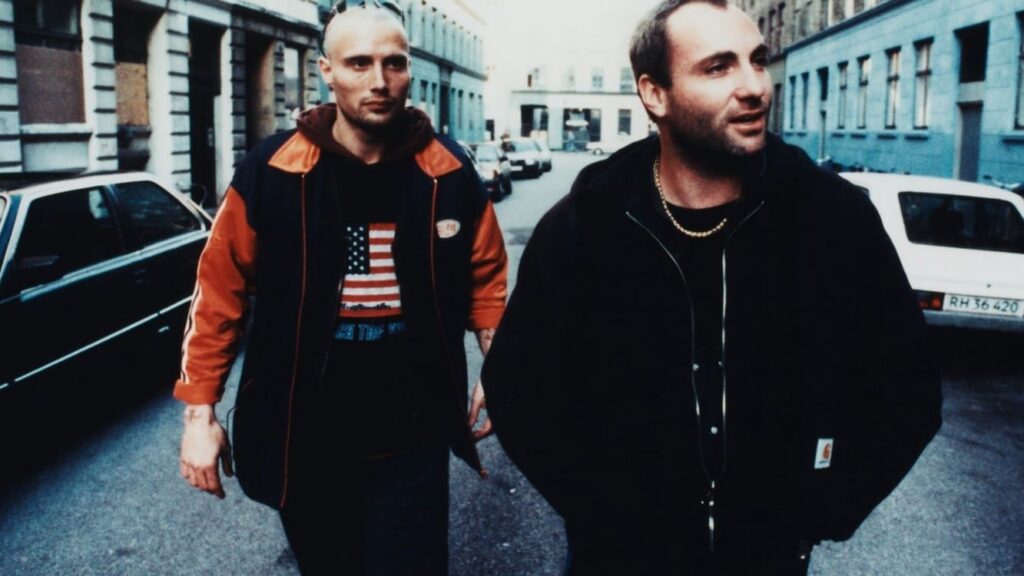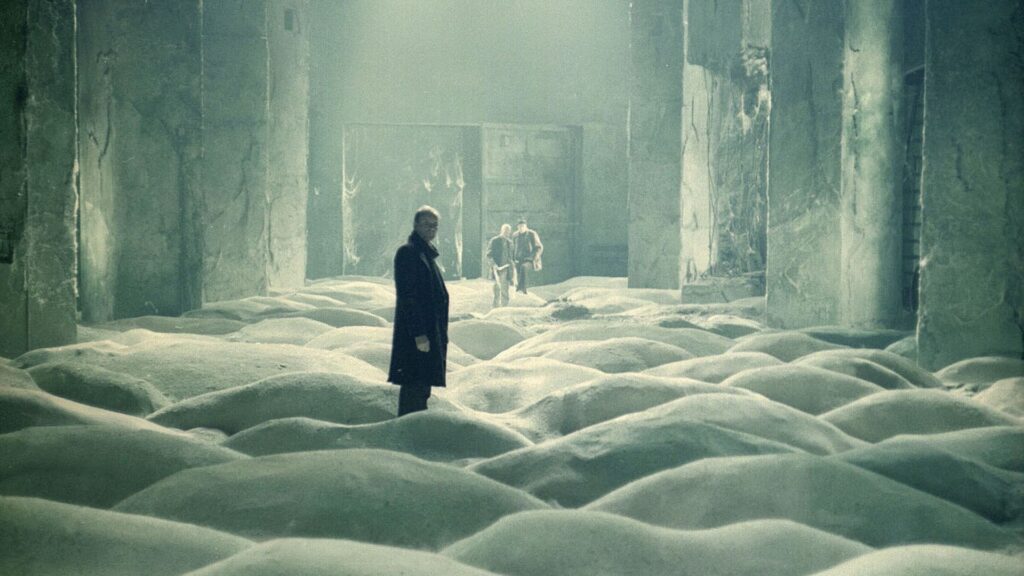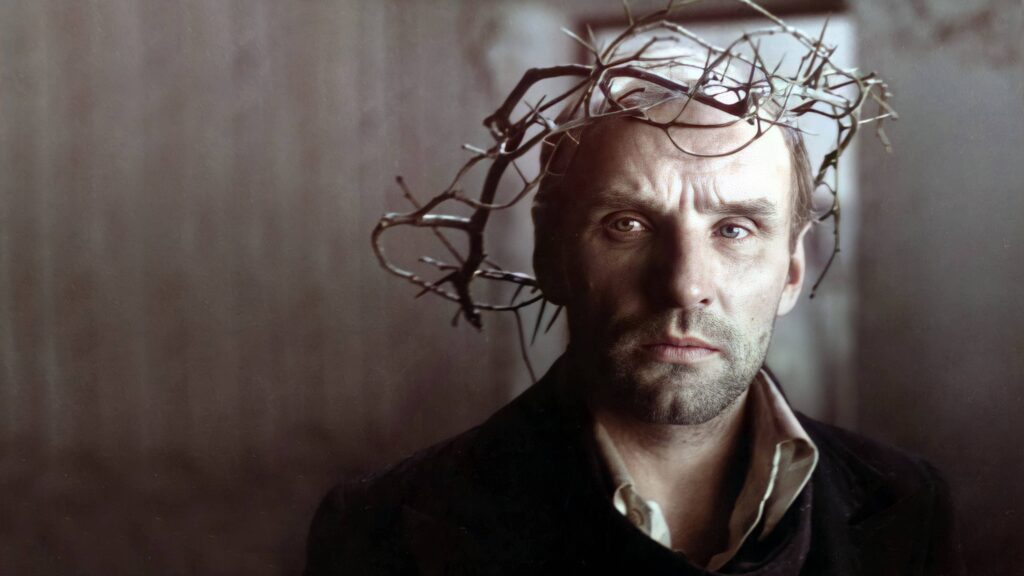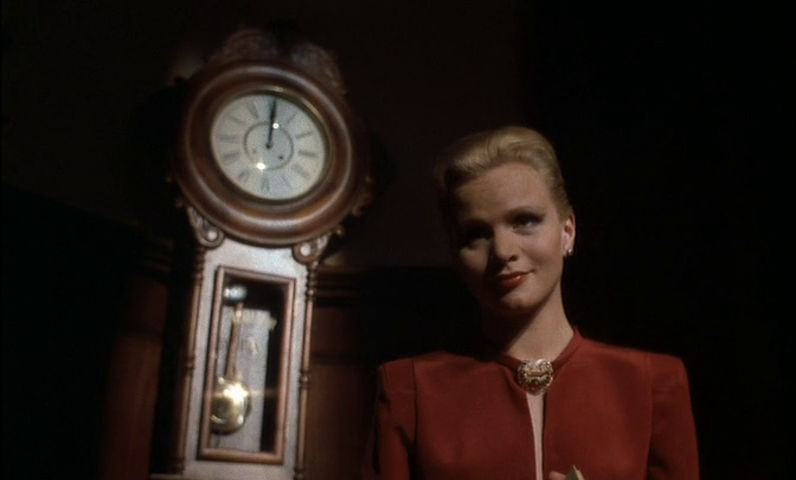Back in March, I made a resolution to watch 50 movies from 50 different countries this year (lots of caveats and rules for what qualifies, as enumerated in that introductory post) and about 50 weeks into the year, we have a success on our hands. Because I started in March, I’ve been playing catchup in terms of recapping qualifying movies, but I mostly caught up during the Six Weeks of Halloween. That said, this post will cover the final 9 qualifying films (and some may not be as thorough as others). As with previous movie-based projects, I will probably get to a Postmortem at some point, but it may be a while since we’re rapidly coming up on end of year posting and 2023 movie awards and whatnot. Anywho, let’s finish recapping the films that brought us to 50 from 50 success. More 50 From 50: [Intro | Part I | Part II | Part III | Part IV | Part V | Part VI | 6WH Week 2.5 | 6WH Joko Anwar | 6WH Speed Round]
Saudi Arabia – The Book of Sun – High school senior Husam finds himself drawn to the world of filmmaking and sets about making a no-budget horror movie with the help of his friends and one supportive teacher. A coming of age story mixed into a guerrilla filmmaking plot makes for a nice combo, and while this doesn’t cater to Western audiences, it’s more interesting because of that and still quite relatable. Perhaps the human impulse towards art and being opposed by crusty old deans are more universal themes than I thought.
While not quite as low budget as the horror movie within the movie, this production makes the most of its limitations, even deploying some mixed media and animation in service of an entertaining little story. At 130 minutes, it’s a tad overlong and some of the beats are derivative and predictable, but the pacing is brisk and it never really drags. This is one of those movies that sorta languishes in the depths of Netflix’s catalogue (though, hmm, it appears it’s no longer there) and I only found it because I was scouring Letterboxd for 50 From 50 movies from unlikely countries like Saudi Arabia. It’s not perfect or anything, but I’m really glad I stumbled onto this one, and it’s one of the bigger surprises of the whole 50 from 50 exercise. **1/2
Bolivia – Sealed Cargo – A police officer whose career is on the rise gets tasked with smuggling cargo containers filled with toxic waste to Chile. He commissions an old train for the trip, but things do not go to plan as the entire population of Bolivia is seemingly aware of the cargo and assumes it’ll be dumped on their land. There’s a lot of potential avenues for drama here, maybe even political satire, but nothing quite comes together in a cohesive way and the entire endeavor drags.
It’s well shot and looks good, plenty of painterly landscapes being traversed by an old-timey train, and it touches on lots of potentially thorny themes, including duty and honor, government corruption, local resistance movements, and so on. Alas, this doesn’t really deliver on any of those promises and sometimes veers sharply in confusing directions (at one point, a policeman decides to start literally eating the neon blue, probably toxic dirt that’s being transported for no discernable reason… another scene involves one of the policeman assaulting a woman who was trying to hitch a ride on the train to escape her local problems… and so on). Points for the attempt, but it doesn’t quite get there. *1/2
Mongolia – Genghis: The Legend of the Ten – The Mongolian title for this movie is Aravt, a reference to the way Ghengis Khaan organized his troops into decimal-based units of 10, 100, 1000, etc… It translates literally to “ten families” and consisted of ten soldiers from ten different families. This movie tells the story of one Aravt tasked with finding and retrieving a doctor to help with an illness plaguing Khaan’s troops. Naturally, they find themselves facing obstacles all along the way, including an abandoned infant that needs care and an enemy force informally led by a power-hungry soldier willing to betray everyone to get his way.
This feels a lot like a Western (the baby subplot reminded me of 3 Godfathers, for instance) with integrated Mongolian culture and history (perhaps that should be phrased in the opposite way, given that this is a Mongolian production). It’s shot well, another movie with lots of beautiful landscapes, and it features some decent small-scale action that gets a little more fantastical as the film approaches its climax. It’s reasonably well executed and entertaining enough, and though it doesn’t break new ground, it is interesting to see a sorta on-the-ground, soldier level view (as opposed to focusing on Ghengis Khaan and epic battle sequences, as a lot of movies have done) of the era from a Mongolian perspective. **
Denmark – Pusher – Nicolas Winding Refn’s debut is a crime movie about a drug pusher who desperately tries to recover from a botched deal and thus finds himself deep in debt to his suppliers. Shot in a vérité style, lots of handheld camerawork and long takes following our characters from behind, it does not paint a pretty picture of drug dealing.

Most crime films at least make some attempt to show why people would be attracted to this way of life before pulling the rug out later on, and sure, the opening of this film isn’t entirely miserable, but our protagonist is clearly not doing great. Once the inciting incident occurs, he’s immediately thrust into a life or death scenario that he has little hope of escaping. The ending has a bit of ambiguity to it, but not really, and it hits pretty hard. Kim Bodnia plays the titular pusher and puts in a remarkable peformance. Mads Mikkelsen is great as usual, but has more of a supporting role (apparently he becomes the main protagonist in the sequels). It’s an impressive debut and very well made, but its the sort of film that doesn’t really appeal to me. Your mileage may vary. **1/2
Egypt – Karmouz War (aka No Surrender) – In colonial Egypt, a police captain refuses to hand over British soldiers who raped a local woman. British forces lay siege to the police station in an attempt to force the release of the prisoners. Amusingly blatant anti-colonial propaganda with larger than life Egyptian heroes and despicable British villains. At its best, it reminded me a bit of over-the-top 80s action B movies starring Chuck Norris. At its worst, it reminded me a bit of over-the-top 80s action B movies starring Chuck Norris. It’s certainly a little overheated and ridiculous at times, but it has its moments. I stumbled onto this movie because it features Scott Adkins, but as it turns out, he’s only shoehorned into about 5 minutes of the movie, and while he injects some more acrobatic action into the proceedings, it’s certainly not a typical Adkins DTV actioner. Not a movie I’d recommend, but it’s got some interesting stuff in it. **
Cambodia – The Prey – Cambodian filmmaker Jimmy Henderson made a name for himself with martial arts actioners like Jailbreak, but here he tackles yet another spin on The Most Dangerous Game. An undercover Chinese agent finds himself in a jail that sells prisoners to trophy hunters. This time, the prisoner turns the tables and the hunter becomes the hunted. Obviously a tired premise, but this is a well executed version of the story with a few minor wrinkles that make it all a worthwhile exercise. I’m definitely going to keep an eye out for future Henderson offerings. **1/2
USSR – Stalker – Based on the novel Roadside Picnic, this tells the story of three people traveling into the Zone, a place where normal laws of physics cease to operate as expected. The titular Stalker is a guide, and the others are hoping to find a specific area of the Zone that grants your most desired wishes. Widely considered a classic, it’s one of those films I find rather frustrating. It’s absolutely gorgeous. The cinematography, framing, and compositions are exceptional and deserving of all the praise the film gets.

The ideas in the story are thematically rich and thought provoking, even if this sort of blunt philosophizing can seem a bit ham fisted at times (it’s certainly a step up from dorm-room philosophizing and I’m willing to grant that something may be lost in translation). It’s certainly not surprising that a Soviet filmmaker in 1979 would be interested in exploring the philosophy of desire and the human inability to actually know their deepest wants and needs. At this point in the USSR, central planning was clearly struggling, and this movie represents a sorta morose acknowledgement that it might be impossible to accurately know our own deep-seated desires, let alone those of others (especially at a societal level).

While it’s a visually spectacular movie, it certainly takes its time, lingering on nearly every shot much longer than needed. Yes, yes, this extra time gives you the space to consider all the ideas and ponder great mysteries and so on, but I’ve always been suspicious of Andrei Tarkovsky. In Solaris, there’s an infamous sequence where a guy travels from the countryside to a city via a highway, with visuals that look more “futuristic” as he approaches the city. It’s nearly five minutes long, and while it does emphasize one of the film’s themes (juxtaposing the natural world with the man-made world), did it really need to be that long? Lots of folks will say yes, but I distinctly remember listening to the Criterion Collection commentary for that film where they explain that the “futuristic” footage of the highway was actually filmed in Tokyo (and in 1972, Tokyo was sufficiently futuristic looking for those in the USSR) and that Tarkovsky included so much of it because he had to justify the expense of his trip.
Maybe I’m overstating this, as clearly Tarkovsky likes his films to be deliberately paced, but man, you really feel that time. In fairness, Stalker is not nearly as bad as Solaris in this respect, but the glacial pacing can be a challenge, especially when combined with some of the more surrealistic components of this story where you struggle to make sense of what you’re being shown. I have a lot of respect for what this movie is doing and I’m glad I’ve finally caught up with it, but it’s a hard movie to recommend and I’m not nearly as rapturous about it as a lot of people… ***
Pakistan – Altered Skin – Ostensibly a blend of zombie horror and conspiracy thriller, this tends to lean harder into the latter, with middling to poor results. I usually don’t mind a derivative plot if it’s executed well, but this is one of those examples where it’s trying to do two different things, but doesn’t really succeed at either. The acting and performances are awful, and it’s visually mediocre. Look there’s no shortage of crappy zombie films out there, but I was hoping the conspiracy angle would give this a leg up. Unfortunately, it’s poorly executed and the only real spin on the formula is the setting in Pakistan… but I don’t think that’s really enough to save this. *
Netherlands – The 4th Man – This was the last film Paul Verhoeven made in the Netherlands before heading off to Hollywood. A psycho-sexual nightmare thriller with some homoeroticism and Catholic guilt thrown in for extra flavor, it tells the story of Gerard, an alcoholic author who starts an affair with Christine, a cosmetologist with a mysterious past. Filled with religious imagery, gratuitous sex, and surreal, dreamlike violence, it’s certainly not a subtle film, but neither is it a bombastic exercise a la some of Verhoeven’s Hollywood productions. Indeed, I’m not sure if the story isn’t happening entirely in our protagonist’s head.

Speaking of whom, he’s played by Jeroen Krabbé, who has been in lots of stuff, but I most associate him with his memorable supporting turn in The Fugitive. He’s excellent here, as is Renée Soutendijk as the kinda, sorta femme fatale. It’s an interesting movie, I’m glad I caught up with it, and I’d like to explore more of Verhoeven’s Dutch films. Certainly not my favorite, but worthwhile! ***
And so that marks 50 different films from 50 different countries. Alright, there are some minor cheats here – Stalker being USSR when I’d already watched a Russian movie is questionable, for example. And I will probably not get to 20 movies from one country (as originally planned), though I did get to 10-15 movies from both Hong Kong and Italy, so I figure that counts for something. As mentioned above, I’ll probably do a postmortem for the project at some point, but it may be a while, as we’ve got a packed schedule coming up with the usual year-ending recaps and Movie Awards and whatnot…